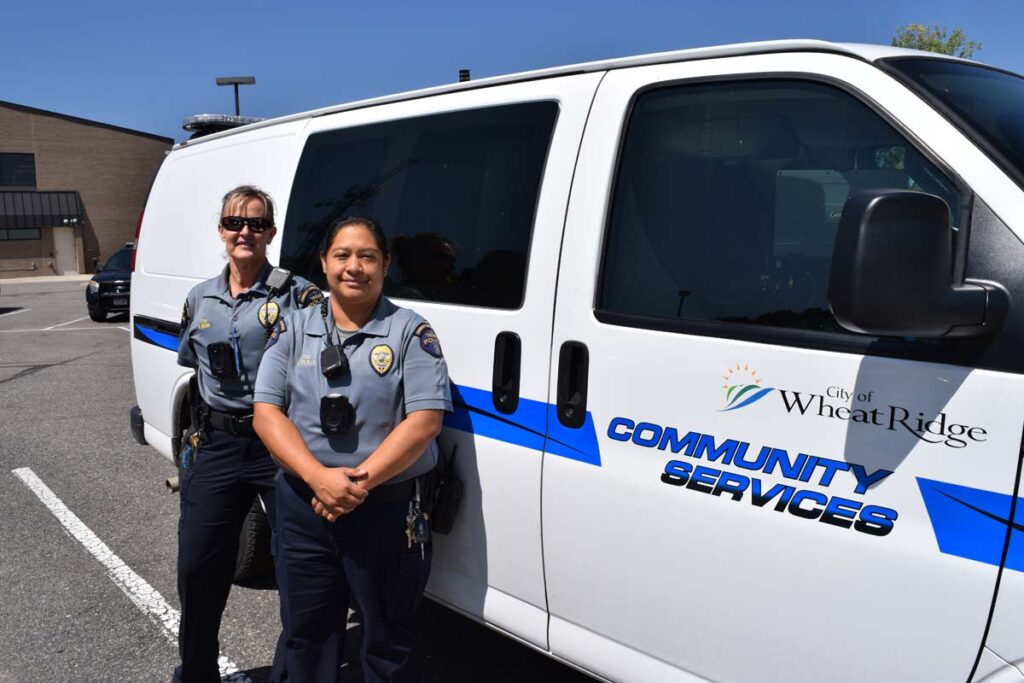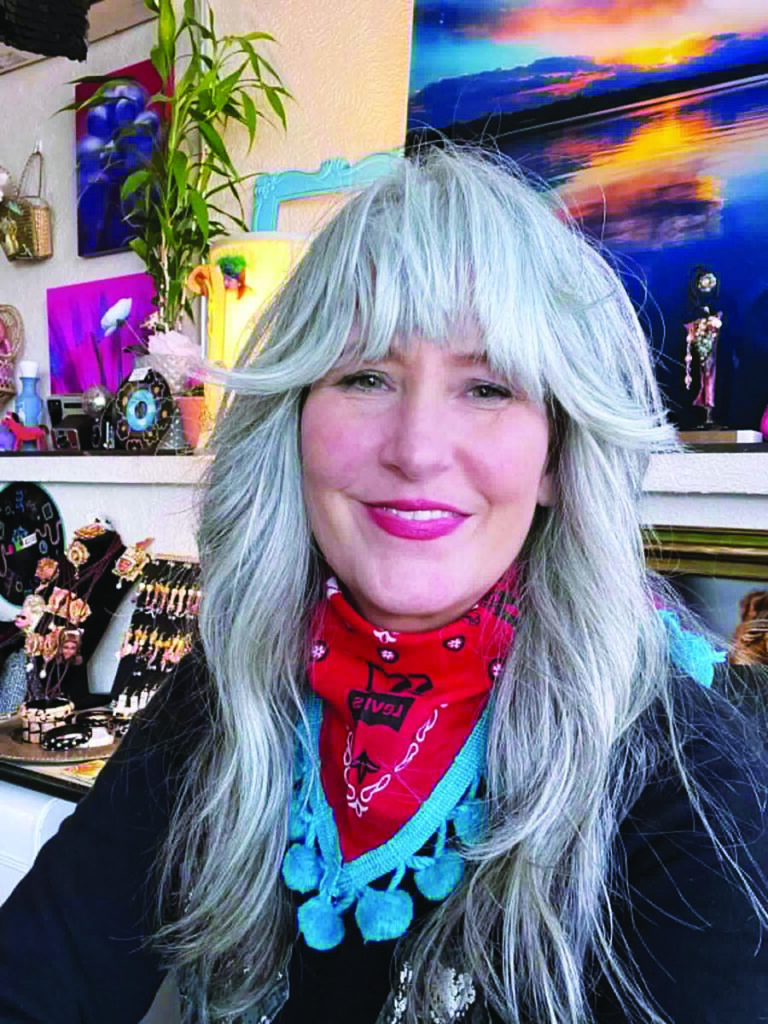At an Aug. 9 special study session, Wheat Ridge City Council debated the details of a proposed ordinance to rein in recreational annoyances like super-sized skateparks and noisome ninja obstacle courses in residential neighborhoods.
Who will enforce that?, asked one city council member. A SWAT team? Police Chief Chris Murtha? An angry mob of neighbors with torches and Sawzalls?
No, it will be the police department’s Community Services Team: seven non-sworn officers who enforce the city’s nuisance codes, animal codes and park regulations, concerning public safety and quality-of-life issues.
But they often rely on complaints from that angry mob – that’s how the team does its job. And that job was growing before the skatepark skirmish and the pandemic. “The need is great,” according to Community Services Supervisor Phil Schroeder, who said it’s the busiest he’s seen in his 17 years with the department. City council recently authorized him to hire an additional Community Service Officer (CSO) to complement the six typically working with him.
I rode along on a code enforcement patrol, and met up with Schroeder, Lead CSO Marie Trujillo, and CSOs Barbara Webb and Kade Ishmael in their offices one midmorning in August.
Three CSOs were missing. Schroeder said CSOs often move on to patrol – “sworn” positions in the police department. Simply explained, sworn officers take an oath to the police chief, are academy trained, can carry weapons and make arrests. CSOs are uniformed, unarmed and deal with misdemeanors only, handing out administrative citations (tickets). Fortunately for the team (and the citizens of Wheat Ridge) four new CSOs were found, now only waiting for their background checks to conclude.
The public files complaints, and a dispatcher sends those to the team. Each morning there’s a list of calls for each CSO to respond to, viewed from their Mobile Communication System (laptop computer) in their vehicles.
With the arrival of COVID-19, the average number of calls has doubled, from 200-225 per month on average to 500 last August. They don’t do mask calls – those go to Jeffco Public Health – but they usually look into complaints about leash laws, tall grass and weeds, and unregistered or illegal home businesses.
Our first call was to Stevens Elementary, where staff had reported a skinny coyote with bad fur outside the building. No, wildlife doesn’t get ticketed for hanging around a school. It’s an animal welfare and safety issue, and falls to the team. “We’ll meet (school) staff, educate, and drop off a meatball,” was the plan, according to Trujillo.
We met Stevens’ Facility Manager Samuel Hernandez, who said the school was on “light lockdown,” with kids inside and away from a potentially dangerous animal. Hernandez showed us a cell-phone photo of the critter (it could’ve been a fox), and the CSOs checked out the foliage bordering the school yard to see if it was still there.
After a discussion, it was agreed the kids could safely play on the other side of the building from the critter sighting, and Webb would return with a “special meatball” – a dose of mange medication mixed with meat, provided by a veterinarian from nearby Planned Pethood.
A visit to a doggy daycare accused of not following animal welfare regs was next.
We approached the entrance, and Webb and Trujillo both commented on the weeds and tall grass. Webb knocked, and when the manager came to the door, introduced herself, explained she was investigating a complaint, and asked for permission to enter and look around – CSOs need permission or a search warrant (or “exigent circumstances”) to enter private property, like any other police officer.
The investigation was simple: check to see that animals had food, water and adequate space in their kennels, and that animal food and medications weren’t stored in the same refrigerator. Were there enough staff for the number of dogs? What’s allowed and what’s not is found in Colorado’s Pet Animal Care Facilities Act (PACFA). Aside from the weeds out front, Webb’s big concern was adequate ventilation; she discussed that with the manager, then left a business card for the owner – no ticket today.
The final call of the ride along was a property abatement matter: an owner who had ignored repeated written warnings to cut high grass and weeds. The backstory, according to Trujillo as we drove up to the simple, one-story brick home on a quiet residential street, was that the property owner died, and the holder of a reverse mortgage took possession, and wasn’t responding to written warnings.
In property abatement cases, the owner gets three written warnings, after which a city judge can issue an order allowing the city to clean up the property and charge the cost to the property, just like a tax bill. The three previous written warnings were still on the front door, where Webb posted them, so sending a request to the city judge just became part of her to-do list.
A neighbor, seeing the Community Service cars arrive, approached and talked to Webb. A smile and waving of hands indicated that he was happy that Webb was taking care of the eyesore. The morning’s ride was drama free.
I asked Trujillo if some calls were more unpleasant than others. “Any call can be an unpleasant call,” she explained, and it depends on the tone set by the officer. In the year after being hired, every CSO learns “verbal judo” – de-escalation skills – through a scenario-based Crisis Intervention Course. “It’s especially needed in animal cruelty cases,” Trujillo said, “because an animal is family,” and emotions can run high. Also, in the case of the kennel, a ticket can affect one’s livelihood.






